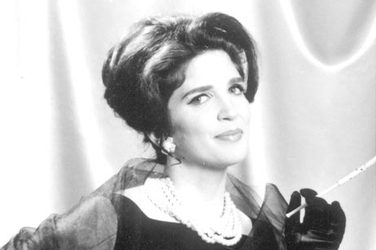Dear Ms. Behavior:
My husband and I were married in 2004, during the brief period that same-sex marriage was legal in Portland, Ore. Our wedding was a very small, rushed affair in a friend’s backyard with no chance to invite out-of-town guests, so a simple announcement and photo were sent out after the ceremony. No mention of gifts was made, since this was not the reason we got married; however, we were slightly annoyed when we received only one congratulatory card and not a single wedding gift. Of course, we never brought this up to anyone involved.
We have now received a wedding invitation for one of my best friends. My husband and I can’t attend the wedding, as it is on the other side of the country. However, the invitation includes a list of stores where the couple is registered. Am I obligated to send a wedding gift? I am normally a big gift-giver, but it irks me to think that I am being asked to buy a gift for a couple that didn’t even send us a card for our wedding. If I don’t send a gift, do I owe the couple an explanation? — Still Don’t Own A Blender
Dear Still Don’t Own A Blender:
Since you received virtually no response to your announcement — and since people usually respond to their friends’ weddings with an outpouring of joy, congratulations and gifts — something about your method of announcing your wedding may have left your friends feeling confused or left out.
Announcements — other than those designed to transmit news of a birth — are often impersonal informative declarations, like “Hey, I’m a Realtor now! Wanna sell your house?” Unlike invitations, wedding announcements are usually reserved for acquaintances, business associates or friends of the parents who aren’t close to the marrying couple. Such announcements don’t often go to intimate friends, so it’s easy to see why a close buddy may feel slighted by getting an announcement instead of an invitation. Such friends may (correctly) believe that other people were invited and they weren’t; an explanation that it was last-minute may not have dissuaded them from feeling that they were on the “B-list.” Your more intimate far-away friends might even have been happy to hop on a plane for your backyard wedding if you’d called them and explained the shotgun circumstances.
Now five years have passed, and you’re still bitter about not having received gifts and cards. It’s time to let go of your hurt feelings, forgive your friends and move on. You’re not necessarily “obligated” to send a wedding gift to “one of your best friends” but not doing so, as you’ve seen, can hurt friendships. Since you’re normally a big gift-giver, act in accordance with your true feelings — not your resentment — and send your friends a lovely present and your congratulations.
Dear Ms. Behavior:
For two years, my girlfriend Maria hinted, whined, wheedled and manipulated about our getting married. I wasn’t sure how I felt about marriage and said so. But more recently, after six months of talking about it every week in my therapist’s office, which eased my anxiety, I finally decided to propose. When I got on my knee and popped the question, however, Maria said “no” — she didn’t want me to marry her just because she wanted to get married. (Now I’m rolling my eyes.) What the “F” is an honest butch to do? She wants me to, so I do, then she doesn’t want me to because she wanted me to! What am I supposed to do now that she’s rejected my proposal? Beg? Or just forget it? — Out-Femmed Butch
Dear Out-Femmed Butch:
Like many old-fashioned femmes, Maria wants you to perform a task and then convince her that it was your idea all along. Proposing was not your idea, so she’s not going to be happy with feeling like she talked you into it. Whatever you do, don’t share your “process” with her, or reveal all the nitty-gritty details of the ambivalence you experienced during therapy. But — assuming it’s true — do let Maria know that you really do want to marry her. Given the insecurity that she may have developed while you were whiling away the hours on the therapy couch — which was the right thing to do — you now need to romance her, telling her all the reasons that you can’t live without her.
However, if in the darkest hours of the night, you still have a tiny bit of nagging doubt, arrange for a very long engagement while you continue to work things out with your therapist.
Meryl Cohn is the author of “‘Do What I Say’: Ms. Behavior’s Guide to Gay and Lesbian Etiquette” (Houghton Mifflin). E-mail her at [email protected] or visit www.msbehavior.com.

